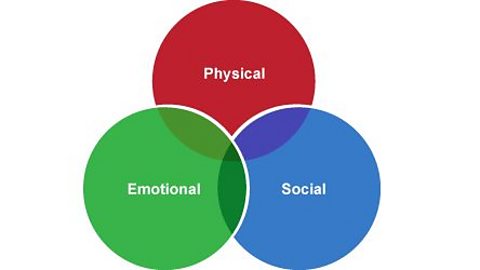Every year when summer comes around and the sun comes out, a shadow is cast over our better judgement.
In our excitement for beaches and barbecues we often forget how to look after ourselves in the warmer weather.
It’s time to remove our rose-tinted sunglasses as we debunk some important summer myths with the help of Dr Alex George.
Has the doctor sparked your interest in warm weather science? Read on for more summer knowledge.
1. “Do I have a cold or is it hay fever?”
There are around 13 million people in the UK who suffer from hay fever, also called allergic rhinitis, and there isn’t currently a cure.
Symptoms are very similar to the common cold: sneezing, coughing, nose running… so how do you know if it’s hay fever that’s got you all bunged up?
One main difference is itchiness around the eyes or throat. A cold also usually goes away after a couple of weeks, hay fever will last a lot longer.
An allergy test, using a skin prick or blood test, could inform you of the specific irritants that are causing your symptoms. These tests can be organised through your GP or pharmacist.
The best way to prevent hay fever would be to avoid pollen, but in the UK when the pollen count is high, this would mean putting yourself in quarantine for the whole summer… not ideal.
Luckily, you don’t have to lock yourself away because there are ways to help prevent and treat hay fever.

2. “Do I need to wear sunscreen when I’ve got a tan?”
A tan does not protect your skin from the harmful effects of too much sun.
When buying sunscreen you should bear in mind the SPF (sun protection factor) - the NHS advises everyone uses at least SPF 30 to protect against UVB.
Sunscreen should also have at least a four-star UVA protection which can also be identified by the letters “UVA” in a circle that indicates it meets the EU standard.
Also ensure you are using sunscreen that isn’t past it’s expiry date. Most sunscreens have a shelf life of two to three years.
Find out more about UV light and skin protection in this guide.
3. “I put sunscreen on this morning, do I need to reapply?”
Even if you did a full body slather up in the morning, sunscreen needs to be reapplied “liberally and frequently” according to the NHS.
“Water resistant” sunscreen also needs to be reapplied, especially after towel-drying or sweating when it may have rubbed off.
Even if you haven’t been for a dip, sunscreen should be reapplied every two hours to retain coverage as the sun can actually dry it off your skin!

4. “Will my spots get better in the sun?”
It’s a common belief that our skin improves with a bit of sun, but there is no conclusive evidence that prolonged exposure to sunlight can improve acne.
At first glance this myth seems possible since there is a correlation between vitamin D which we get from sunlight and general improvement in skin quality. After sun exposure skin can look clearer because it cause the production of melanin which gives the skin a tan. A tan can reduce the appearance of spots because they are less visible on darker skin, but the spots are still there.
The sun might also dry out the skin, which can have a temporary effect on reducing acne but can also cause dryness and dehydration which might actually lead to breakouts.
It is important to keep skin clean and make sure you aren’t exposing it to sunlight without recommended protection.

5. “Do hot drinks really cool you down?”
The thinking behind this theory is that because a hot drink raises your body temperature this causes you to sweat. Sweating cools you down because when sweat evaporates it transfers heat energy from your skin to the environment - this is part of homeostasis.
This theory also applies to spicy food - curry on the beach? We wouldn’t say no.
However, it isn’t quite that simple. Sweating also results in the loss of liquid from your body which means you need to take in more liquid to stay hydrated.
Dehydration means your body loses more fluids than you take in. It can lead to symptoms like headaches and tiredness, and if not treated, exhaustion and heatstroke. When it’s hot in the summer months, it is important to be taking in plenty of liquids - hot or cold.
The NHS recommends 1.2 litres (six to eight glasses) of fluid every day to stop us getting dehydrated. In hotter climates the body needs more than this.

6. “Is everyone having a better summer than me?”
We all experience FOMO - the modern phenomenon of the fear of missing out - and never more so than in summer.

Holidays, festivals, barbecues… social media can make it seem like other people are having fun all the time and it’s hard to switch off summer envy. But, we have to remember that social media is just a highlights reel, and for most of us life isn’t like a Love Island montage.
Summer is a great time to spend with friends and family, to try new things and make the most of the longer days. But, remember to pace yourself and try not to put too much pressure on yourself to be having the best summer ever, all of the time.
This article was published in July 2019
Dr Alex debunks health myths
Does chicken soup cure a cold? The Love Island star has the answer to this - and more.

Dr Alex debunks exam stress
Love Island's Dr Alex is here to demystify exam stress and help keep you calm.

Health and wellbeing
Positive lifestyle choices help to promote good physical, emotional and social wellbeing.
